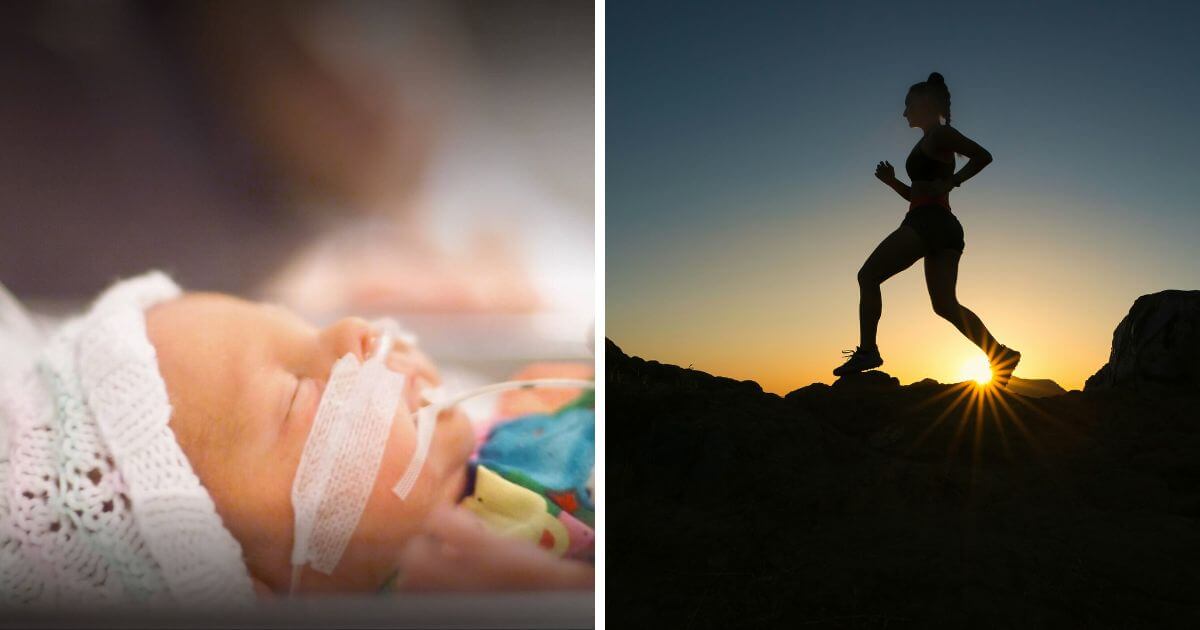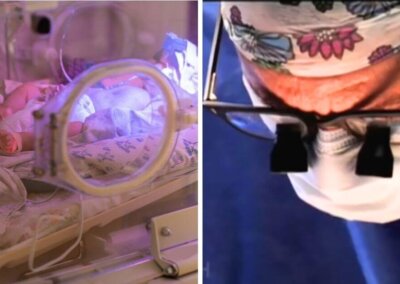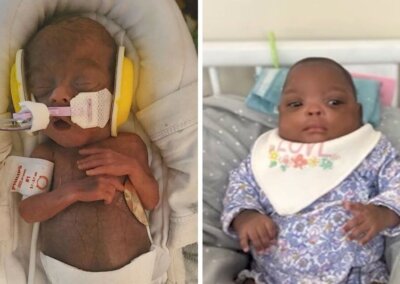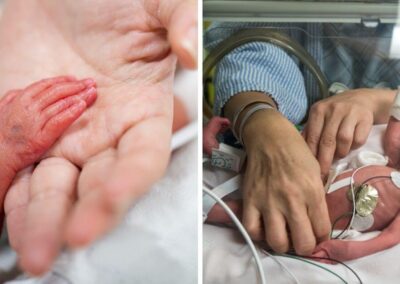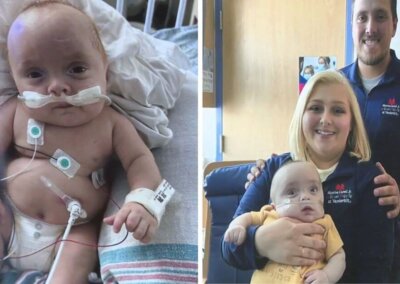A mum whose premature son was given a 1% chance of survival has completed a 147-mile run – one mile for every day her son spent in neonatal intensive care – to fundraise for premature babies and their families.
Stephanie Hauser, a mum of four from Colorado, discovered that she had an infection in her uterus about half-way through her pregnancy, after coming down with a fever. This meant she had to give birth right away, and her son, Zev, was born at just 23 weeks gestation.
However, because Zev was born so prematurely, the hospital they were staying in did not have the capability to support babies of 23 weeks gestation so Stephanie and her husband, Ben, had to decide whether to go to another hospital, about an hour’s drive away, with more equipment and resources in order to try and save his life.
“It was an impossible decision to make”, Stephanie said. “It was a long shot, and we chose to take it”.
“He stunned the whole room”
After being airlifted to the next hospital, Stephanie gave birth to Zev, who cried in spite of his lungs not being fully formed. “No one expected him to be alive, and no one expected him to even have air to push out to cry”, his mum said. “He stunned the whole room”.
However, the challenges were not over for the family. Around two weeks postpartum, Zev’s condition worsened. His parents were told that they could try medication as a final measure to try to save Zev’s lung function, but that even if he survived, it was likely he would never be able to walk, breathe or eat on his own.
Stephanie described how she was desperate for hope and asked the doctor “Can you tell me what’s good?”.
The doctor reportedly replied “I’ve never seen a baby with this much vitality. He’s dying, but he’s fighting”.
“Look how far he’s come”
Over a five-month period, Zev faced brain bleeds, lung collapses, and strokes, but he never gave up. Now four years old, Zev has an inhaler for chronic lung disease and glasses for retinopathy of prematurity, an eye disease common for premature babies.
Otherwise, he is a healthy and happy boy, who was able to join his mother for a brief stretch of her recent fundraising run.
Stephanie said “We knew it was highly likely that [Zev] would never walk, and to see him run with me for just a little bit of time, wow, what a narrative for his life. Look how far he’s come, and look at where we’re going”.
Last year, Stephanie ran 147 miles over about 48 hours as a reminder of the 147 days her son spent in intensive care and to raise money for Stephanie and Ben’s nonprofit that aims to build a community for premature babies and their families. She faced challenges including thunderstorms, an inflamed Achilles tendon and exhaustion, but managed to raise 10 times her fundraising goal.
“There’s a narrative that says extreme prematurity is going to take from you, but let’s change the narrative to say, there’s not less for you at the end of this road, there’s only more”, she said. “That was the same with the run. There’s not less for you when things don’t go as planned. There’s more.”
More and more premature babies are surviving despite the odds
Baby Zev was born at 23 weeks gestation, just shy of the current UK abortion limit of 24 weeks. In the decade to 2019 alone, the survival rate for extremely premature babies doubled, prompting new guidance from the British Association of Perinatal Medicine (BAPM) that enables doctors to intervene to save premature babies from 22 weeks gestation. The previous clinical guidance, drafted in 2008, set the standard that babies who were born before 23 weeks gestation should not be resuscitated.
Once a mother is over 22 weeks pregnant, if her baby is born prematurely, the chances of survival increase week-by-week due to technical advances, better planning so pregnant mothers who go into preterm labour go straight to specialist units, and the increased use of steroids.
Research published in November 2023 by academics at the University of Leicester and Imperial College London found the number of babies born at 22 weeks gestation who survive to discharge from hospital tripled between 2018-19, before the BAPM guidance was introduced, and 2020-21, after the BAPM guidance was introduced.
According to this research, there were a total of 261 babies born alive at 22 and 23 weeks, before the abortion limit, who survived to discharge from hospital in 2020 and 2021. This is compared to the Government abortion statistics, which show that in 2021 alone, there were 1,054 abortions for babies at 22 and 23 weeks gestation.
Spokesperson for Right To Life UK, Catherine Robinson, said “Baby Zev’s story is particularly wonderful, not only because of how fiercely Zev fought for life, but also because it shows the dedication and commitment of his parents in repeatedly choosing to provide the best possible care to preserve his chance of survival. Babies like Zev prove that the prognoses given by doctors are not always accurate, and that in spite of predictions, these little fighters can go on to live full and happy lives”.


